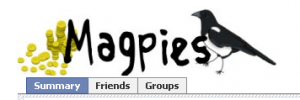Ben Kirman of LiSC (Lincoln Social Computing Research Centre) writes:
Lincoln Social Computing Research Centre have created two Facebook games that are being used to research social behaviour on Facebook. Everyone is invited:
Familiars is a game that finds out what your “animal companion” would be based on your Facebook activity: http://apps.facebook.com/familiar
Familiars are the animals that represent your true personality. Your friends can vote for what animal type they think your familiar should be. Using these votes and by studying your social behaviour on Facebook, your familiar will choose an animal form.
Your familiar will change their form whenever they think your personality changes. So if you are very social one week your familiar might be a rabbit or other social creature; the next week when you are quieter your familiar will change to reflect this.
You can tell your familiar what kind of animal you want it to be, but it knows how you behave so will always reflect your true personality.
Magpies is a game about collecting interesting things and sharing your collections with others: http://apps.facebook.com/magpiemagpie
You create a stash, for example “Italian food”, then friends add pictures or descriptions to that stash. For instance, they may add the location of their favourite Italian restaurant or a picture of their favourite pizza.
Both games are free to use and completely open to all Facebook users, so please pass on this invitation to anyone you think would be interested. For more information, please contact slawson@lincoln.ac.uk or bkirman@lincoln.ac.uk
The games have been developed by the Lincoln Social Computing Research Centre (LiSC) within the Faculty of Media, Humanities & Technology as part of the PASION project. PASION (Psychologically Augmented Social Interactions Over Networks) is a major EU-funded project involving the University of Lincoln and 17 other partner organisations investigating the social aspects of communication that are mediated by technology. The data gathered from users playing these games will provide insights into how people behave and communicate online.



thanks for sharing these links of game